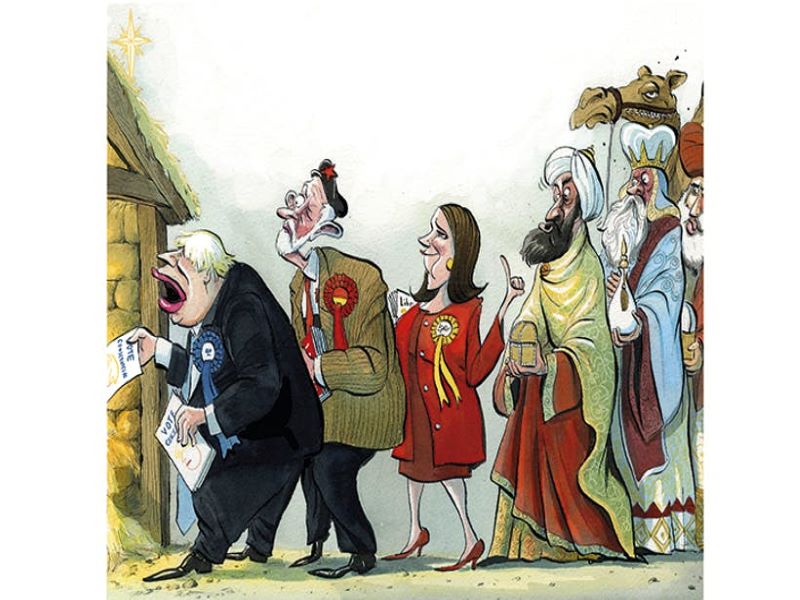The UK general election this coming Thursday feels important. The Conservatives represent Brexit (with or without a deal). Further privatisation of the healthcare system, and inaction on the climate crisis. Labour would take a conciliatory approach to Brexit while favouring nationalisation of industries. Their Green New Deal is the first time a major UK party has placed such importance on the environment. What’s clear is the outcome of the election will set Britain on two distinctive paths.
Labour must be commended for their Green New Deal. It says much about the attitude shown towards the climate crisis that Labour is the first political party to propose such a deal. And yet, the deal doesn’t go far enough.
Yes, reducing emissions will help limit the impacts of the climate crisis. But, the climate crisis is an effect of a problem, the cause is our economic system. Without placing a lens on the cause, the problem will remain.
Consumption and the growth paradigm it feeds have fuelled the climate crisis. But during the election campaign, no political party has questioned the feasibility of continuous growth, nor the consumption feeding it.
This begs the question, why haven’t these issues been discussed during the election campaign?
The Overton Window
One of the reasons no political party has presented a compelling solution to the climate crisis (or indeed even discussed the underlying causes) is a result of the Overton window. This refers to a range (or window) of policies the public finds acceptable. “Any policy falling outside the Overton window is out of step with public opinion and the current political climate.”
A political party placing a lens on the merits of growth would be questioning the unquestionable. Growth is a bedrock of our economic system. After all, a growing economy is a healthy economy.
To question the merits of growth would be revolutionary. It would also be suicidal if you had any hope of winning an election. And yet, growth is the very thing that must be questioned to transform our economy and deal with the climate crisis.
There’s also the issue of corporations, or rather the size of corporations. Some corporations now have a market value of over $1 trillion dollars.
These corporations are enormously powerful. That power stems from the current system of growth and consumption. For a political party to question the long term validity of the current system would be to also question the long term existence of these companies. You would assume they wouldn’t take too kindly to this.
The missing piece in the jigsaw
Never before has humanity known our current way of doing things is going to lead to our demise. Yet there are no signs we’re going to rear away from our current course.
The problem we face requires transformative systems change. A complete overhaul of our current way of doing things that focuses on respecting environmental boundaries. Creating an economic system working in harmony with the environment it depends on.
If we can learn one thing from history, its radical systems change has never occurred through a programme of reform from the current political order. The political order gains its credibility and power from the current way of doing things. Radically changing this, would be to give up their power.
A global crisis requires a global solution. Our political framework isn’t fit for purpose, but what’s the alternative? At present, there isn’t one. That’s why people are still placing their hope on governments to save the day.
What’s needed is a global movement grounded in a desire to transform away from the growth paradigm. Extinction Rebellion could be that movement. But they won’t fulfil their potential if they continue to demand changes from governments.
The lightbulb moment will occur when the movement realises government won’t change things because they can’t.
In the meantime, by all means, vote. I know who I would vote for if I thought it would make any difference to the only challenge that really matters.



